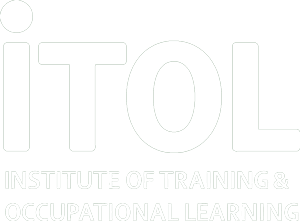Do You Think Critically or are you a Critical Thinker? (Pt 2)
Why you should train others in Critical Thinking techniques.
Critical thinking encourages us to slow down and gather relevant information before making decisions. By practicing critical thinking, learning leaders are more likely to develop training programmes that are strategically aligned to business goals.
Training professionals should also encourage learners to think critically. When employees think critically, they will achieve the following benefits:
- Improved Communication: When employees can think critically and remain open-minded about a topic, the quality of communication improves. In addition, employees can more freely consider other arguments, which fosters more meaningful and valuable discussions.
- Increased Emotional Intelligence: Employees who can think critically are less driven by emotions during the decision-making process. Critical thinking also encourages respectful analysis and consideration of other opinions.
- Saves Time and Money: Rash decisions can be costly, resulting in inefficient use of time and money. Employees who practice critical thinking make considered decisions and identify problems early on.
- Increased Creativity: Critical thinking encourages employees to think outside the box and be open to new ideas and perspectives. This increase in creativity improves problem-solving and opens avenues for exploring growth and development.
- Encourages Self Reflection: The process of critical thinking involves being curious about other people’s perspectives and personal beliefs. This practice opens the door for self-reflection, which can be a powerful tool in decision making.
Simple Habits That Increase Critical Thinking
The good news is that critical thinking is a practice that can be learned. So, what should we be doing every day to increase our critical thinking ability?
- Ask Questions
- Get curious about the problem you are trying to solve.
- Ask yourself questions that encourage broader thinking, such as:
What do I already know?
Where is my information coming from?
What might I be missing?
What are the opposing views on the topic?
- Have a Clear Goal and Purpose
When solving a problem or making a decision, you need to be crystal clear about what you are trying to achieve. Take time to identify and outline the steps you need to take to achieve the desired outcome. Creating a robust action plan can help you stay focused and deliver more impactful training programmes.
- Be an Active Listener
Critical thinking involves getting curious about other people’s opinions and thought structures. When we actively listen and seek to understand before judging, it encourages open dialogue and yields more meaningful insights. Remember, you can’t make an informed decision without first analysing all of your options.
- Be Aware Of Your Personal Biases
We all carry personal biases on topics, whether or not we are aware of them. Our life experiences and upbringing contribute to our opinions and thoughts on many issues. Awareness of your biases allows you to think more critically and reduces the chance of them influencing your decision-making process.
- Think Ahead
When problem solving, getting caught up in the urgency and finding a solution that works now is easy. However, good critical thinking will involve some foresight. Taking time to think about how your decision (whether it’s selecting a new learning management system or determining which training activity to use) will impact different aspects of the business both now and in the future can save time and money. In addition, developing a list of benefits and consequences of a solution and seeking insight from varying stakeholders can help you make an informed decision.
KEY TAKEAWAYS
Critical thinking is not a skill we’re born with; it takes time and dedication. While the practices involved in maintaining a critical thinking mindset are not difficult, they are often forgotten in our fast-paced ever changing world. However, the benefits of cultivating critical thinking in the workplace are numerous. Taking the time to practice the habits daily will change your decision-making process and put you on a path to personal and professional success.

